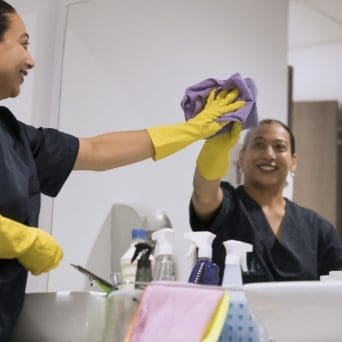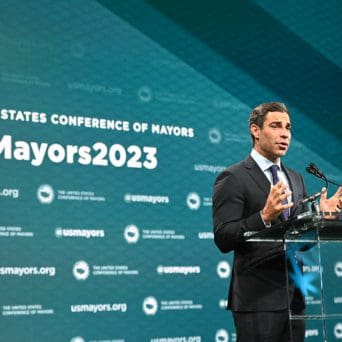This is the fifth blog in our monthly series exploring CityHealth’s 2.0 policy package. Sign up for our newsletter to learn about new policy solutions, tools, and resources.
The U.S. Environmental Protection Agency estimates that more than 40,000 chemicals are manufactured, processed, and imported in the U.S. — the vast majority of which have not been adequately assessed for their effects on human health or the environment. From cleaning products to furniture to foodware, everyday items that cities procure may contain toxic chemicals that can damage our health and negatively impact the environment. Local policy solutions that encourage cities to purchase in an eco-friendly manner can help reduce worker and community exposure to toxic chemicals, hazardous working conditions, and other adverse health risks.
This month, we’re continuing our blog series exploring CityHealth’s 2.0 policy package with a look at Eco-Friendly Purchasing. These policies — also known as “environmentally preferable purchasing” — require city governments to purchase products and services that have a less harmful effect on human health when compared to similar alternatives. When city leaders adopt Eco-Friendly Purchasing policies, they make it clear that the health of our communities and our environment is worth protecting.
The Toxic Chemicals Challenge

Products frequently purchased by cities — including furnishings (furniture, flooring, and carpeting), foodware, and cleaning products — have the potential to expose people to toxic chemicals through contaminated air (which can increase the risk of developing asthma and other diseases), water, or direct skin contact. These products can adversely impact people throughout their lifecycles, from manufacturing, to maintenance, to disposal.
Toxic chemicals can affect people’s health and development based on a variety of factors, including the type of chemical, amount, route, length of time, and frequency of exposure. Some chemicals — such as chemical flame retardants and PFAS — have serious adverse health effects and have been widely detected throughout the U.S. population, including in pregnant women and children.
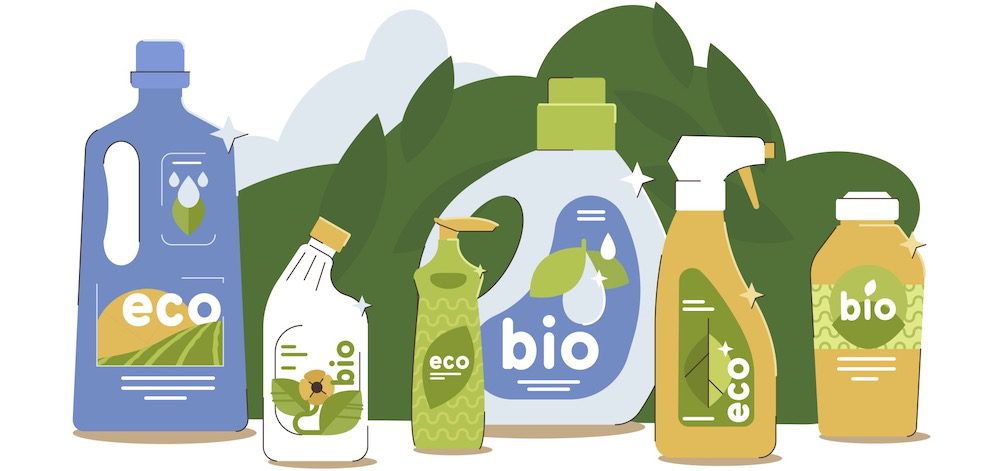
Some jobs also face disproportionate risks. Cleaning workers — the majority of whom are people of color — are at greater risk for chronic exposure to harmful cleaning products, with studies suggesting that these workers suffer increased rates of asthma and Chronic Obstructive Pulmonary Disease (COPD). People in low-income communities and communities of color also experience higher levels of exposure to hazardous chemicals and conditions, exacerbating health disparities.
In addition to negative impacts on health, purchasing products made of unsafe chemicals can also harm cities’ economies. Studies suggest that annual health care costs and lost earnings from low-level exposure to toxic chemicals found in everyday products exceed $340 billion — more than 2.3% of U.S. GDP.
The Solution: Eco-Friendly Purchasing

Cities have immense purchasing power; according to the U.S. Census, local governments make more than $1.72 trillion in expenditures annually. By choosing affordable alternatives that don’t contain known harmful chemicals, cities are making an investment in a healthier, more sustainable future for their workers, residents, and the environment.
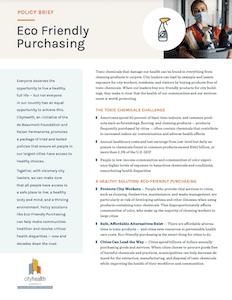
Download our Eco-Friendly Purchasing policy brief
Cities across the country — from New York City to Seattle — have adopted Eco-Friendly Purchasing policies. In San Francisco, where a landmark ordinance was passed in 2005 to establish and implement purchasing requirements for targeted, high-impact product categories, the city’s standards now cover nine comprehensive product categories to protect the health of its workers and residents. Its carpet products’ regulations now encompass recyclability as well as material safety and transparency, making a healthy impact in the lives of San Franciscans.
Eco-friendly purchasing policies advance environmental and economic sustainability. Implementing Eco-Friendly Purchasing policies is the right choice for our health, our communities, and our planet.
Earning CityHealth Gold
Starting in 2022, CityHealth will assess the nation’s 75 largest cities on their Eco-Friendly Purchasing policies. Cities can earn a gold, silver, or bronze medal based on how the city performs on three key criteria:
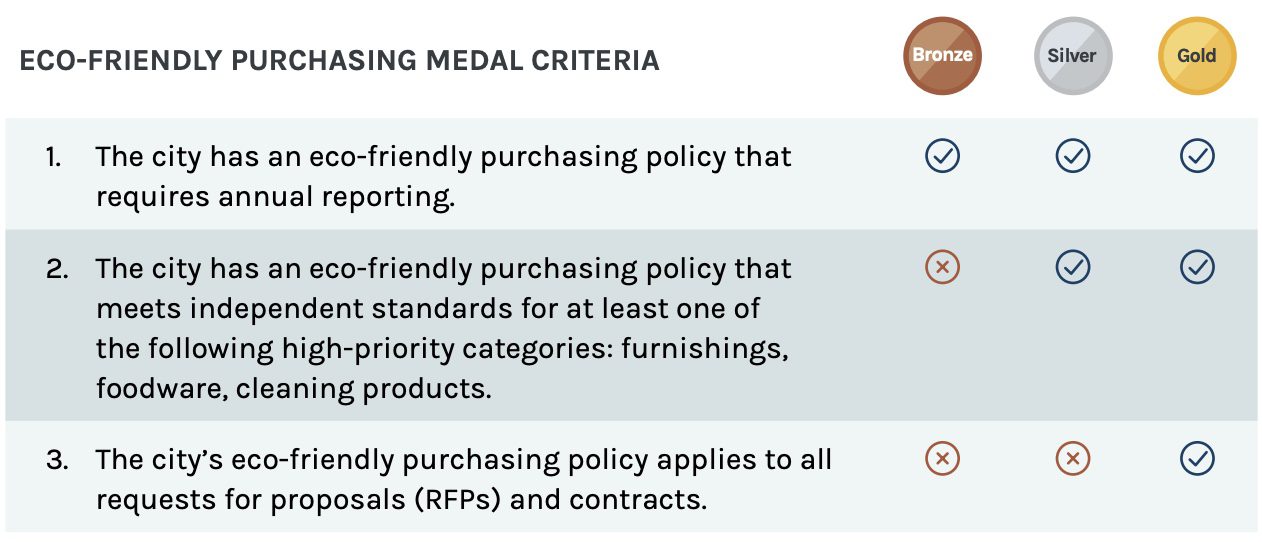
Learn more about the product categories included in the criteria.
CityHealth is a resource for city leaders, policymakers, and advocates pursuing policy change that can help all residents live healthy, full lives. Have a question about Eco-Friendly Purchasing or any of our other policies? Please feel free to send us an email, and join us to learn more about the tools, research, and technical assistance opportunities from CityHealth and our partners.



 Katrina Forrest, J.D., is Co-Executive Director of CityHealth.
Katrina Forrest, J.D., is Co-Executive Director of CityHealth.  Catherine Patterson, MPP, is Co-Executive Director of CityHealth.
Catherine Patterson, MPP, is Co-Executive Director of CityHealth. 
